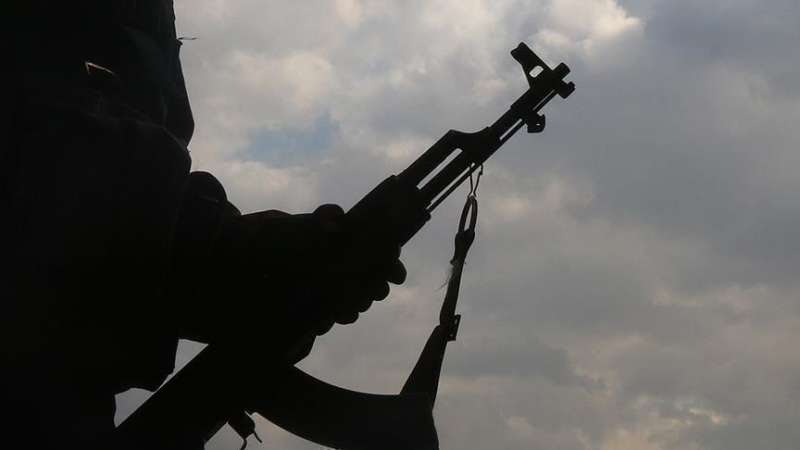Several Nigerians are worried about the Federal Government's ongoing practise of pardoning some terrorists and robbers, claiming that this practise actually makes the security situation in the nation worse.
According to a survey conducted by newsmen in the South-South region, the public believes that the nation's commitment to combating terrible crimes is called into question by the pardoning of terrorists and outlaws.
They claimed that bandits were responsible for the kidnapping, killing, and injury of innocent bystanders and that they ought to be prosecuted, punished, and not pardoned after being apprehended.
They said that forgiving the offenders would inspire future crimes, increase the number of Nigerians killed, scare off investors, and cause the country's economy to collapse.
The respondents further said that the consequences of pardoning them would be enormous on the general well-being of the nation and the people.
According to Eyobio Okon, a lawyer in Uyo, apprehended bandits and terrorists have to be severely punished so that those who are committing the same crime will be deterred from doing so.
He said that in “sane” societies when someone was arrested by security agencies, the suspect would pass through investigation and prosecution and get convicted.
The lawyer, however, noted that there were certain offences in which the government had prerogative power under the Constitution to pardon the perpetrator, but in the case of banditry and terrorism morality should be considered.
According to him, the punishment for such offences is death, and the perpetrators should not be pardoned after killing so many other innocent persons.
He questioned the assurance that such pardoned persons would not commit the crime again.
Okon however said that it was the right of the federal government to disclose or not the identity of the sponsors of banditry/terrorism in Nigeria.
A legal practitioner in Calabar, Timothy Idege, expressed worry that after losing so many souls to terrorists or bandits, the government still considered it wise to grant them amnesty when arrested.
According to him, the measure tends to translate to the impression that being civil, responsible and patriotic is useless.
Idege noted that Niger Delta militants whom he said, agitated for the development of their region, did not go about killing innocent citizens.
‘’They only said, ‘these resources you take from our land should also be used to develop our land,’ he added.
The lawyer maintained that the consequences of pardoning bandits and terrorists were huge and amounted to encouraging the perpetuation of evil.
He added that there would be a continuous economic downturn in the nation since nobody would like to invest in a chaotic society and development would be hampered.
Henry Ekini, National Legal Adviser, Committee for the Defence of Human Rights (CDHR) in Rivers, recommended maximum punishment for those involved in terrorism and banditry to discourage others intending to do so.
He said: “As much as the law permits the certain authority to grant pardon, crimes that are destructive shouldn’t be considered for clemency.
“Terrorists and bandits should not be considered for state pardon because their criminal activities run contrary to public policy and interest.
“If public interest is directed at eliminating terrorism, banditry and even corruption, then it would be contradictory that government is fighting terrorists and on the other hand granting them amnesty.’’
Ekini however said even though it would be wrong for President Muhammadu Buhari to give amnesty to terrorists, the law does not restrict him to do so.
“This is so because by law there is no clear classification of what offences that pardon is to be granted.
“But for public confidence and interest, there shouldn’t be a consideration for terrorists and bandits; they should be subjected to maximum punishment,” he added.
He also said it would be wrong for the federal government to reveal the names of perceived sponsors of terrorism without clear evidence.
“Where this can be justified is if investigation provides credible evidence by security agencies linking a person to sponsoring terrorism, with the involvement of the court,” he said.
On his part, the Bishop of the Catholic Diocese of Auchi, Most Rev. Gabriel Dunia, urged the government to do everything needed to name and prosecute all the accomplices in the act of terrorism.
Dunia said it had become imperative that sponsors of insecurity must be specifically identified; adding that their motives aimed at destabilising the nation.
“Insecurity has set Nigeria on the reverse gear. Our Nation has suffered untold hardships and setbacks.
‘’Bandits and other terrorist organisations have had a field day, causing havoc to all citizens of this country either directly or indirectly,’’ he said.
Also, a Muslim cleric, Sheilk Momoh Ibrahim, said that Nigerians were tired of hearing about the government’s plan to uncover the sponsors of terrorism in the country without any arrest or prosecution.
Another legal practitioner, Mike Atemagbon, said that he was worried about the dimension terrorism had taken in the country, adding that there were a lot of laws to deal with it.
“We have laws in this country duly signed to tackle terrorism in all forms.
“I am referring to Terrorism Prevention Act 2011 as amended, and Terrorism Prevention Amended Act 2013, which spells out who the terrorists are and what punishment is meant for them.
A public servant in Yenagoa, Lawrence Emiola, decried the death of innocent Nigerians due to banditry and terrorism, lamenting that the country has become a “battlefield.”
He urged the government to gear more efforts towards eradicating terrorism and banditry in the country for the greater development of the nation.



